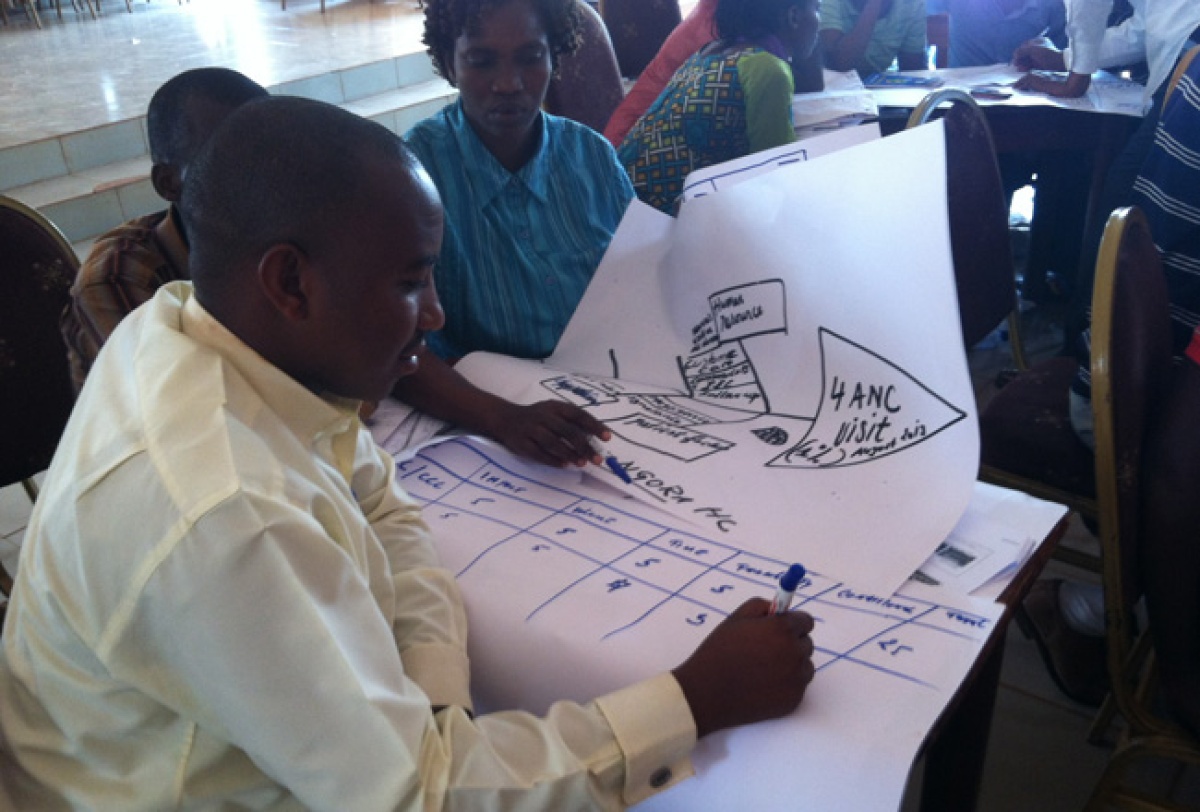'All Babies Count’: Caring for Newborns in Rwanda
Posted on Nov 6, 2013

“When you reduce child mortality, you increase life expectancy. We should therefore collaborate to ensure that no baby dies, because all babies count,” said Dr. Christian Rusangwa, the Southern Kayonza District clinical director for Partners In Health’s Rwandan sister organization, Inshuti Mu Buzima (PIH/IMB).
Rusangwa delivered this remark during the initial session of the All Babies Count (ABC) Neonatal Learning Collaborative. In the language of Kinyarwanda, the ABC initiative is known as Impinja Ntizigapfe, which comes from a community folk song about a mother's wish that no baby ever die.
Launched in July 2013, ABC is a collaboration between IMB and the Rwandan Ministry of Health that’s aimed at reducing the country’s stubbornly high neonatal death rate through training and mentorship, systems-strengthening initiatives, and quality improvement strategies. This holistic approach is creating change throughout the health care system, from the community to the hospital level.
Although Rwanda has hit the U.N. Millennium Development Goal target for reducing child mortality, the neonatal death rate is not declining as quickly. According to the 2010 Rwanda Demographic Health Survey, there are 27 neonatal deaths for every 1,000 live births in Rwanda.
At the recent two-day training, Rusangwa dwelled on this statistic and urged the approximately 50 nurses, community health workers, data managers, and other health workers to do everything in their power to reduce it as a team. The participants, most of who work in maternity wards, had come from PIH/IMB-supported Rwinkwavu District Hospital, as well as from eight other health centers. In various seminars and training sessions, participants discussed best practices and examined specific ways they can contribute to preventing needless newborn deaths. There was a strong emphasis on strengthening neonatal care processes, bolstering antenatal care services, and improving delivery management.
“We can change the health of our babies if we keep active, share knowledge and skills, and intensify our efforts to save babies by coming up with creative solutions from the real experts in this area—you as health care providers in the field every day in your communities,” Dr. Hema Magge, director of pediatrics at PIH/IMB, told the group. “We should utilize the chance to learn the best practices from this training and from one another. This will pay off in the long run.”
The skills taught in the classroom will be reinforced at the bedside through ongoing clinical mentorship and quality improvement coaching
Virginia Uwingabire, a line manager in the pediatric unit at Rwinkwavu Hospital, said she picked up several new skills through the trainings and that she was eager, albeit a tad nervous, to apply the newfound tools in a clinical setting. “We have learned so much that will enable us to save lives, but putting this into practice is the challenge,” Uwingabire said. “There is a need for commitment to put into action what is taught in the trainings. We also need continuous trainings to build our capacity and help us achieve our goal of saving babies.”
Fortunately, the ABC initiative was designed with that exact sentiment in mind. The skills taught in the classroom will be reinforced at the bedside through ongoing clinical mentorship and quality improvement coaching to help the teams implement their new ideas, measure the impact, and effect change. To further build capacity, future training sessions will focus on sharing lessons learned from each facility’s quality improvement efforts, communicating across levels of the health system to tackle complex issues such as transport and referrals, and provide clinical updates in topics such as essential newborn care and kangaroo mother care.
“Through supporting each other and learning from one another, we will surely reduce child mortality and save the lives of babies,” concluded Dr. Fuldgence Nkikabahizi, the medical director of Rwinkwavu District Hospital.

